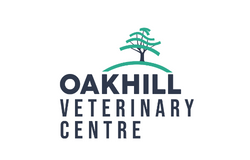As February was Pet Dental Health Month, we thought we would share some top tips for maintaining your pet’s healthy mouth
Although small, your pet’s teeth are a very important part of your pet’s overall health, and just like us, they can benefit from having good oral hygiene. It can be easy to forget about your pets’ pearly whites, but since February is Pet Dental Health Month, it’s the perfect time to look at the benefits of keeping on top of your pet’s dental care.
Why is it Important for My Pet to Have Healthy Teeth?
Good oral hygiene can help improve your pet’s overall well-being. Plaque can start to form on your pet’s teeth a couple of hours after eating. Over time, plaque can harden and turn to tartar, providing the perfect environment for bacterial growth which can lead to a variety of problems, including tooth decay. Once plaque hardens to tartar, it can only be removed via a dental procedure requiring a general anaesthetic.
Excess plaque and tartar can cause gum inflammation. Gum disease can affect the deep supportive structures of your pet’s teeth and is one of the most common disease pets suffer from today. Inflammation of the gums can also lead to infections within the mouth, these can be extremely painful for your dog often causing excessive drooling, pain when eating or playing with toys, and bad breath.
Checking your pet’s teeth daily can reduce the severity of these conditions and help bring any concerns to your vet’s attention quickly before they cause too many problems.
How Often Should I Brush My Pet’s Teeth?
We recommend that you brush your pet’s teeth 2-4 times a week, but brushing their teeth every day gives the best results. However, it is important to use the right equipment; a soft bristled brush is best, and ensure you use a special pet toothpaste (as the fluoride in human toothpaste can be toxic to pets).
If you pet is averse to you brushing their teeth, try letting them lick the toothpaste off your finger initially, then work up to running your finger over their teeth, before eventually swapping to a toothbrush.
Other ways to Maintain Healthy Teeth
It can be useful to train your pet to have their teeth brushed at a young age, as some older pets don’t like people going near their mouths. However, there are lots of other ways to maintain healthy teeth and gums:
- Dental chews: Some chews can work by reducing plaque accumulation on your pets’ teeth. However, these treats can be high in calories, so it’s important to reduce your dog’s food intake accordingly and use them sparingly.
- Toys: Pet-safe toys can make cleaning pets teeth enjoyable. Toys carrying the VOHC seal of approval will help to maintain a healthy mouth.
- Dental diets: Some pet foods are specially designed to keep your pet’s teeth clean by scraping away plaque as they eat. The vets at Oakhill are always happy to discuss the most reliable dental diets for your pet.
Dental Needs for Different Types of Animals
This blog focuses mainly on dental care for domestic cats and dogs. If you would like to find out more about how to look after the teeth of your rabbits, guinea pigs, horses or any other furry friends, please feel free to speak with a vet at your pets next visit.
